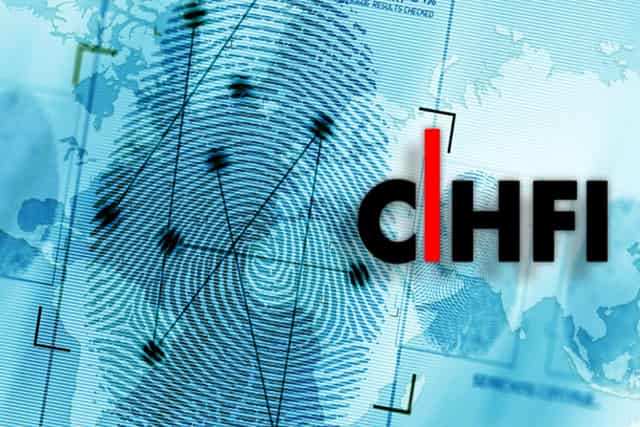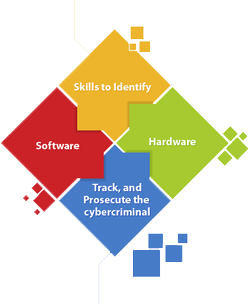This cyber security Stuff is hard

Computer Forensics
CHFI Presents detailed methodological approach to computer forensics and evidence analysis. It is a comprehensive course covering major forensic investigation scenarios that enables students to acquire necessary hands-on experience on various forensic investigation techniques and standard forensic tools necessary to successfully carryout a computer forensic investigation leading to prosecution of perpetrators.
Certification
CHFI Program certifies individuals in the specific security discipline of computer forensics from a vendor-neutral perspective. The C|HFI certification will fortify the application knowledge of law enforcement personnel, system administrators, security officers, defense and military personal, legal professionals, bankers, security professionals, and anyone who is concerned about the integrity of the network infrastructure.


- How to recover deleted files and deleted partitions in Windows, Mac OS X, and Linux
- The process involved in forensic investigation using Access Data FTK and Encase Steganography and its techniques, Steganalysis, and image file forensics
- Password Cracking Concepts, tools, types of password attacks and how to investigate password protected file breach
- Different types of log capturing techniques, log management, time synchronization, log capturing tools
- How to investigate logs, network traffic, wireless attacks, and web attacks
- How to track e-mails and investigate e-mail crimes and many more.
A CHFI v8 certified professional will be able To understand:
The process of investigating cyber-crime, laws involved, and the details in obtaining a search warrant.
Different types of digital evidence, rules of evidence, digital evidence examination process, and electronic crime and digital evidence consideration by crime category Roles of first responder, first responder toolkit, securing and evaluating electronic crime scene,conducting preliminary interviews, documenting electronic crime scene, collecting and preserving electronic evidence, packaging and transporting electronic evidence, reporting the crime scene.


Courses
Computer hacking forensic investigation is the process of detecting hacking attacks and properly extracting evidence to report the crime and conduct audits to prevent future attacks.
Computer forensics is simply the application of computer investigation and analysis techniques in the interests of determining potential legal evidence. Evidence might be sought in a wide range of computer crime or misuse, including but not limited to theft of trade secrets, theft of or destruction of intellectual property, and fraud. Computer forensic investigators can draw on an array of methods for discovering data that resides in a computer system, or recovering deleted, encrypted, or damaged file information.
Training
Computer forensics training teaches that computer forensics investigation is the process of detecting hacking attacks and properly extracting evidence to report the crime and conduct audits to prevent future attacks. Computer forensics is simply the application of computer investigation and analysis techniques in the interests of determining potential legal evidence. Evidence might be sought in a wide range of computer crime or misuse, including but not limited to theft of trade secrets, theft of or destruction of intellectual property, and fraud. Computer Hacking Forensic investigators (CHFI) can draw on an array of methods for discovering data that resides in a computer system, or recovering deleted, encrypted, or damaged file information. Securing and analyzing electronic evidence is a central theme in an ever-increasing number of conflict situations and criminal cases.